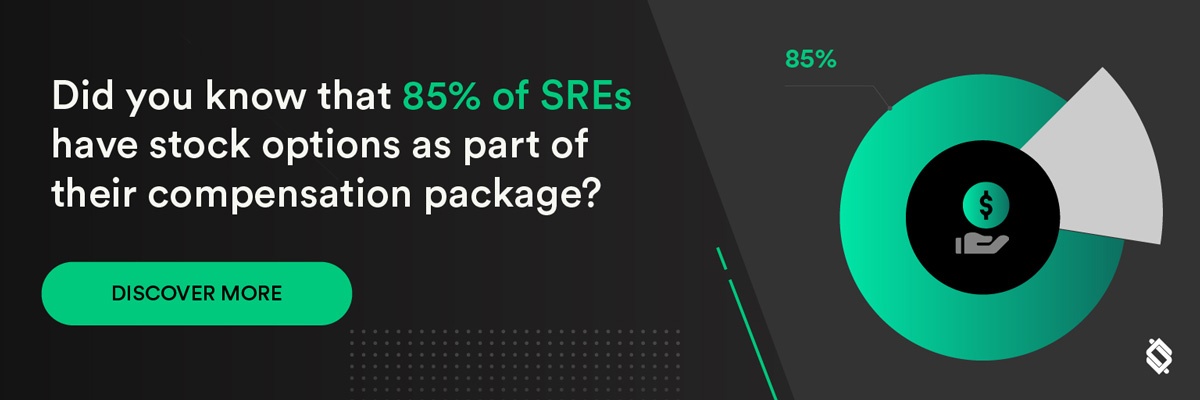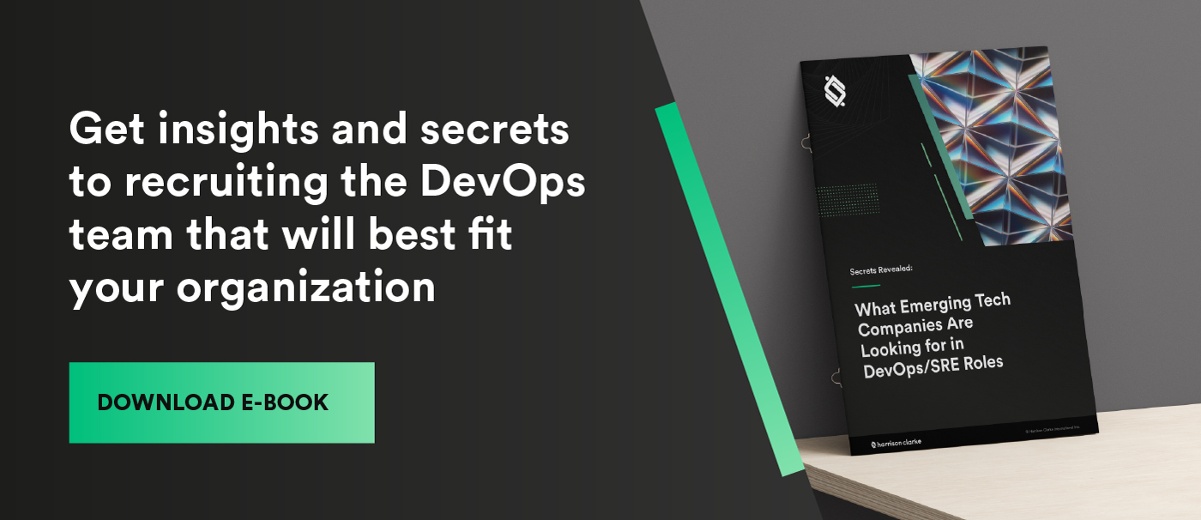When negotiating salaries and other benefits while considering an opportunity, many DevOps and site reliability engineer (SRE) candidates look for equity packages. Equity is a different type of offer than salary alone. For SREs who are joining startups or established companies, an equity deal can make the position more attractive, even at a lower base salary. But what makes an equity deal good or bad?
Typical Equity Packages for DevOps/SRE Candidates

Startups are the most likely to offer equity deals, but publicly traded companies and other established organizations may offer these deals to lure prospective employees. Equity deals aren’t all the same. Here are some basics to get you started.
Types of Equity Deals: Options vs. Grants
Equity deals might consist of stock options or stock grants. Stock options give you the opportunity to purchase a specific number of shares at a set price, within a certain period of time. In most cases, your price is lower than the market price.
Stock grants work differently. A stock grant offer is contingent on you working at the company for a set amount of time. For example, you may receive a grant of 500 shares that will be available to you after you work for the company for two years. If you leave prior to this, then you don’t receive the stock.
Which is better? There are advantages to both. Stock options often provide greater value and are more flexible. Most situations offer you an early exercise option if you’re not fully vested.
Because you don’t purchase them outright, stock grants can still have worth even in a volatile market. If you consider the new position to be long term, then having to wait for a period of a few years isn’t likely to deter you.
About Vesting
With both stock options and grants, there is typically a vesting period. The most common schedule with stock options is over four years, with 25 percent being vested after the first year, and 1/48 after each subsequent month. It’s not always called a vesting period with grants, but you will have to work for a set number of years to receive them.
What’s the “Market Rate” for Equity Compensation?
In looking at an equity compensation package for DevOps/SRE hires, you’ll also want to know if it’s competitive. You can evaluate your offer through tools such as AngelList and Wealthfront.
Experience Often Dictates the Offer

In DevOps/SRE hiring, your experience will often be a significant part of the equity equation. More experienced, top-performing SREs often receive better offers in this highly competitive market. If you fit into this category, know your value, and make sure that you’ll be financially secure in the years to come.
What Makes an Equity Deal Good or Bad?

Determining if the equity deal is good is somewhat subjective. There are several areas you’ll need to consider before you say yes.
Consider these points:
- Vesting time: This may determine whether the deal is favorable or not. It depends on how long you plan to stay with the company. Because the job market is strong for DevOps/SRE candidates, it may seem attractive to seek out a better deal, but the promise of equity is also a good reason to stay. Plan out your career path to determine if you think this will be a long- or short-term position.
- Market rate: Do your research on the sites mentioned above and ask colleagues and peers if they have received similar deals.
- Percentage of total shares: The number of shares matters much less than the percentage. This point is especially crucial if you’re comparing two offers. An offer of 100 shares out of 10,000 is actually a better deal than an offer of 500 shares out of 100,000.
- Acquisitions and equity: Ask about what happens to equity if another company acquires the business. Make sure there is some kind of safety net.
- Company viability: Inquire about the company’s funding and whether it expects to raise more money in the future (especially if it’s a startup). The company may not provide you with specifics, but you need to know this information on a high level to feel confident in the business’s long-term viability and stability.
- The whole package: Consider all aspects of the offer—salary, bonus, and equity.
Negotiating Your Equity Deal

After you receive the initial offer, you’ll likely want to negotiate. You have every right to negotiate all aspects of the deal, including equity. You may discover in your research that the offer is below the market rate, or you may feel the vesting schedule is too long.
You should be able to lean on your recruiting firm’s expertise to understand and negotiate the deal. Together, you can further evaluate the company and determine what the average salary is for the role in your metro area. In the end, these conversations can help you determine what’s most important to you and what will give you long-term financial stability.
Is an Equity Deal Right for You?

An equity deal is a unique benefit and can be attractive for DevOps/SRE hires. Experienced SREs should consider them when job seeking, especially those who are looking at startups.
Working with us, you’ll get straightforward, responsible advice. Find out more about what growing tech companies really want in DevOps/SRE hires by downloading our e-book, What Emerging Tech Companies Are Looking for in DevOps/SRE Roles.




